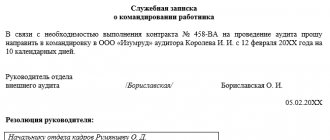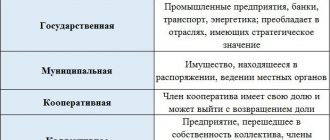Today, the majority of citizens have registered ownership of residential premises. Such a right arises as a result of privatization, purchase or exchange of housing, or by inheritance.
Moreover, the right of ownership in all cases will be the same, regardless of the grounds for its occurrence. Contrary to popular belief, purchased or received housing does not need to be privatized in the future.
The presence of housing in the property, along with the rights to use, own and dispose of the apartment, entails the responsibilities of the owners and other citizens living there as defined by the Housing Code of the Russian Federation. Housing legislation determines that the owner exercises rights solely for the purpose of the residential premises, that is, for his own residence, the residence of his family members and other citizens. The apartments cannot be used in any other way, except in special cases.
A person who has immovable objects in private ownership may provide them for use by an outsider. The basis for such legal relations is mainly a residential lease agreement.
How does ownership of residential premises arise?
Let's look at the most common cases of ownership of houses and apartments. Ownership arises:
- during the construction of a residential building. This right arises after the commissioning of housing on a legally allocated land plot at the time of state registration;
- by the right of acquisitive prescription. Ownership comes as a result of bona fide, continuous ownership of housing for fifteen years;
- for unmanaged property. The right of ownership to residential real estate that does not have an owner, which was abandoned by the owner in the prescribed manner, is restored within a year or acquired due to statute of limitations;
- for unauthorized construction. In cases of construction of housing on an unauthorized plot of land, ownership may be established by a court;
- when concluding a purchase and sale agreement for residential premises. A real estate purchase and sale agreement obliges the seller to transfer, and the buyer to accept and pay for, residential premises;
- when concluding an exchange agreement. Based on the exchange agreement, the parties are obliged to exchange the agreed housing;
- based on a gift agreement. In pursuance of the contract, the donor is obliged to transfer residential real estate to the donee free of charge;
- based on a rental agreement. The Civil Code allows for the acquisition of property rights based on the payment of rent. An annuity can be permanent (perpetual) or lifelong (throughout the entire life of the annuitant);
- as a result of inheritance of residential premises. Legislation determines the possibility of accepting inheritance by will and by law;
- as a result of privatization. The privatization law has been in force since the early 90s, during which time most apartments in multi-apartment buildings became property in this manner. Privatization of residential premises means the voluntary free transfer of housing stock into the ownership of the citizens living there;
- in housing construction cooperatives. In the past it was a fairly common way to buy an apartment. To create ownership rights, it was necessary to pay the share contributions in full;
- share building. Today, one of the most common ways to purchase housing. The principle of shared construction means that citizens finance the developer during the housing construction stage. Investment of money can be one-time or spread over time.
Current legislation provides that the right of ownership of real estate, including residential property, arises in citizens after state registration of this right. In some cases, ownership must be confirmed through the court (statement of claim for privatization of an apartment).
The intended purpose of the residential premises is for citizens to live in them
In paragraph 2 of Art. 288 of the Civil Code of the Russian Federation talks about the special legal regime of residential premises, which are intended for the residence of citizens and the residence of their family members.
In certain cases, they can be used for the residence of other persons, for whom they, in accordance with Part 2, Clause 2, Art. 288 of the Civil Code of the Russian Federation can be rented out by the owner on the basis of an agreement (rent, loan, etc.), but also exclusively for residence .
Residential premises can be occupied as a recipient of rent or as a legatee (if a “housing” testamentary legacy is established in favor of such a person). However, in all cases without exception, any user of housing (from the owner to the derivative owner) is assigned a universal legal obligation, the essence of which is that the residential premises must be used for its intended purpose.
Thus, the use of residential premises is intended :
- for residence of the owner and his family members;
- for the residence of other persons with the permission of the owner on the basis of a lease, rental agreement, etc.
Rights and responsibilities of a homeowner
According to the Housing Code of the Russian Federation, the owner of a residential premises is obliged to:
- keep your home and common property in proper condition, use it only for its intended purpose;
- reconstruction and redevelopment of residential premises should be carried out only with the permission of the relevant authorities;
- comply with safety, environmental, sanitary and other standards;
- prevent violation of the rights and interests of cohabitants and neighbors;
- regularly pay rent and utilities;
- carry out major repairs of a residential building.
The rights of the owner include:
- use, disposal, possession of residential premises
- moving in family members
- transfer of housing for rent or rental to others
Housing legislation provides in some cases the possibility of using housing for business activities and locating non-industrial organizations. To do this, it is necessary to transfer the residential premises to non-residential ones.
Comments on Article 288 of the Civil Code of the Russian Federation
In paragraph 1 of Art. 288 of the Civil Code of the Russian Federation talks about certain restrictions when the owner exercises his powers to own, use and dispose of residential premises. The specified powers of the owner in this case can be exercised only in accordance with the purpose of the residential premises .
From the intended purpose of residential premises established by law, it follows that the placement of commercial enterprises, offices of legal entities, and production facilities in residential premises is unacceptable.
The limits of the exercise of rights to residential premises should also include the obligation to properly handle residential premises , i.e. compliance with sanitary and hygienic requirements, construction and other norms and regulations. For example, the owner, tenant or any other user of housing in an apartment building does not have the right, without permission from the relevant authorities, to rebuild the apartment, install additional heating or other equipment, etc., that is, to carry out unauthorized redevelopment and reconstruction of the residential premises.
As a last resort, against the owner for mismanagement of the residential premises belonging to him, for example, for violating the rights and interests of neighbors, using the residential premises for other purposes, or for failure to carry out the necessary repairs, in accordance with Art. 293 of the Civil Code of the Russian Federation, a sanction for termination of ownership rights may be applied.
The grounds for the emergence of property rights are those legal facts with which the law connects the emergence of this right. To acquire the right of ownership, the existence of a thing (property) that can be the property of a given person, the expression of his will to own this thing and other circumstances provided for by law are necessary (Article 218 of the Civil Code of the Russian Federation).
The methods of emergence of property rights are usually divided into primary and derivative.
The initial methods are characterized by the fact that the right of ownership arises (is established) either for the first time or independently of the will of the previous owner. These include the following grounds:
1. Acquisition of ownership of a newly created thing. Newly created real estate (Article 219 of the Civil Code of the Russian Federation).
2. Acquisition of ownership of fruits, products, income received as a result of the use of property.
3. Acquisition of ownership as a result of processing
unless otherwise provided by the contract, the ownership of the new movable thing is acquired by the owner of the materials; if the cost of processing an item significantly exceeds the cost of materials, then the owner is the processor if he acted in good faith and carried out this work for himself (Article 220 of the Civil Code of the Russian Federation). 4. Taking ownership of things that are generally available for collecting (picking berries, fishing, etc.) (Article 221 of the Civil Code of the Russian Federation).
5. Acquisition of ownership rights to ownerless property (things abandoned by the owner, finds, stray animals, treasure) (Articles 225 - 235 of the Civil Code of the Russian Federation).
6. Acquisition of property rights as a result of acquisitive prescription: if a person is not the owner, but conscientiously, openly and continuously owns property as his own (real estate - for 15 years, other - for 5 years). Until the expiration of the specified periods, this person enjoys protection of his possession from all other persons (Article 231 of the Civil Code of the Russian Federation).
7. The acquisition of ownership of an unauthorized structure can be recognized by the court if the site is provided in the prescribed manner for the erected structure (Article 222 of the Civil Code of the Russian Federation).
Derivatives are grounds associated with the transfer of a thing (property) from the ownership of one entity to another, on the basis of succession or the will of the previous owner, being the result of an agreement, a unilateral transaction.
These include the following grounds:
Acquisition of ownership rights under a contract of sale, exchange, gift or as a result of another transaction for the alienation of property. Acquisition of ownership rights to the property of a legal entity during its reorganization. Inheritance by will or law1. Acquisition of ownership rights by a member of a housing, garage or other consumer cooperative to the corresponding premises after making the entire amount of the share contribution. 4.3. Termination of ownership
The grounds for termination of ownership rights can be divided into the following types (Article 235 of the Civil Code of the Russian Federation):
1) termination of the right of ownership at the will of the owner by transferring this right to other persons (under contracts of sale, delivery, donation, etc.) or by renunciation of the right of ownership. Until another person acquires ownership of a thing abandoned by its previous owner, the rights and obligations of the original owner do not cease. This means the possibility of not only returning this thing to the previous owner (since he has not lost his right to it), but also holding him responsible, for example, for the harm caused by this thing (if the thing thrown away by the owner had any harmful properties, for example , old refrigerator, car);
2) termination of ownership as a result of events: death of the owner, destruction or destruction of property due to natural disasters, fires, accidents and other unforeseen circumstances;
In the event of the destruction of a thing, it is understood that this happened in the absence of anyone’s fault, due to random reasons or force majeure, for the results of which no one, as a rule, is responsible. Then the risk of loss of property, as a general rule, lies with the owner himself. If the thing is destroyed due to the fault of other (third) parties, they bear property liability to the owner for causing harm;
3) termination of ownership rights as a result of forced seizure of property from the owner is carried out on specific grounds that are provided for by law. Moreover, the list of such cases is formulated in an exhaustive manner, which does not allow its expansion even by another law. This is one of the important guarantees of the rights of the owner. Specific grounds for the seizure of property from the owner against his will and in these cases must be directly provided for by law.
Seizure of property from the owner in the above cases, as a general rule, is carried out on a compensated basis, that is, with compensation to the owner for the value of the seized item(s). These include:
alienation of property that cannot belong to a given person due to the prohibition contained in the law;
alienation of real estate in connection with the seizure of a land plot;
repurchase of mismanaged cultural property;
buying back pets if they are mistreated;
requisition;
payment of compensation to a participant in shared ownership in exchange for the part of the common property due to him if it is disproportionate to the allocated share;
acquisition of ownership of real estate by a court decision in cases where it is impossible to demolish a building or structure located on someone else’s land plot;
purchase of a land plot for state or municipal needs in accordance with a court decision;
confiscation from the owner of a land plot used by him in gross violation of the requirements of the law;
sale at public auction by court decision of the mismanagement of the contents of a residential premises;
nationalization of property owners by virtue of the adoption of a special law.
The law allows for the gratuitous seizure of property belonging to the owner against his will, when foreclosure is applied to the owner’s property for his obligations through confiscation of property.
A special case of termination of property rights is the privatization of state and municipal property. It applies only to property in state and municipal ownership, i.e., it is intended only for public and not private owners, and for this reason cannot be considered as a general basis for termination of property rights. At the same time, it always becomes the basis for the emergence of private property rights (for citizens and legal entities). Finally, it can only be carried out in the manner prescribed by privatization laws, and not by general civil legislation.
Signs that a living space must meet
Clause 2 of Article 15 of the Housing Code of the Russian Federation talks about the characteristics that a residential premises must meet: it must be isolated and suitable for permanent residence of citizens (meet established sanitary and technical rules and regulations, and other legal requirements).
The suitability of the premises for permanent residence is determined in the manner prescribed by housing legislation, according to specific sanitary, fire safety, urban planning and technical requirements. In particular, a residential premises must meet such consumer qualities as the permanence and all-weather nature of the structure, its real estate, its fundamental nature, and the conditions for conducting household activities for those living in it. Satisfying the need for long-term residence predetermines a separate type of residential premises with its inherent consumer properties and providing the opportunity to run a household. In addition, a residential building is subject to a minimum standard (taking into account local conditions) of sanitary and technical requirements that create a state of suitability of the structure for habitation for a long time.
Requirements for residential premises, the procedure for recognizing residential premises as suitable for living in and the grounds on which residential premises are recognized as unsuitable for living in, and in particular an apartment building is recognized as unsafe and subject to demolition or reconstruction, are established by Decree of the Government of the Russian Federation of January 28, 2006 N 47 “ On approval of the Regulations on recognizing premises as residential premises, residential premises unsuitable for habitation and an apartment building as unsafe and subject to demolition or reconstruction.”
What is meant by improper use of residential premises?
In residential premises, for example, offices of legal entities, branches of political parties, warehouses, various kinds of handicraft workshops, etc. cannot be located. Keeping farm animals in residential premises is prohibited.
The norms of housing and civil legislation directly establish that industrial production, hotels, and missionary activities cannot be located in residential premises. (part 3 of article 17 of the Housing Code of the Russian Federation, paragraph 3 of article 288 of the Civil Code of the Russian Federation), since any residential premises should be used only for the residence of citizens (tenants, owners, members of their families, etc.).
The housing user does not have the right to enter into any civil agreements that change the intended use of residential premises.
In paragraph 39 of the Resolution of the Plenum of the Supreme Court of the Russian Federation dated July 2, 2009 No. 14 “On some issues that arose in judicial practice when applying the Housing Code of the Russian Federation” the following is stated on this issue:
“the use of residential premises for purposes other than their intended purpose, based on the provisions of parts 1 - 3 of Article 17 of the Housing Code of the Russian Federation, should be understood as the use of residential premises not for the residence of citizens, but for other purposes (for example, using it for offices, warehouses, placement of industrial production, maintenance and breeding animals), that is, the actual transformation of residential premises into non-residential ones. At the same time, it is necessary to take into account that the law (Part 2 of Article 17 of the Housing Code of the Russian Federation) allows the use of residential premises for carrying out professional activities (for example, scientific, creative, lawyer, etc.) or individual entrepreneurial activities without converting it into non-residential premises by citizens living in there on legal grounds (including under a social tenancy agreement), but provided that this does not violate the rights and legitimate interests of other citizens, as well as the requirements that the residential premises must meet (fire safety, sanitary and hygienic, etc.)” .
Prohibition of industrial production in residential premises. In paragraph 3 of Art. 288 of the Civil Code of the Russian Federation contains an imperative ban on the placement of industrial production in residential buildings . A similar rule is contained in Part 3 of Art. 17 of the Housing Code of the Russian Federation, however, the latter refers to residential premises . Since residential buildings are a type of residential premises, the wording contained in the RF Housing Code is more precise.
At the same time, the owner is allowed to locate enterprises (not related to industrial production, such as shops, cafes, etc.), institutions, and organizations in the residential premises he owns. But this is possible only after the transfer of such premises to non-residential , which is carried out in accordance with the norms of the Housing Code of the Russian Federation.






